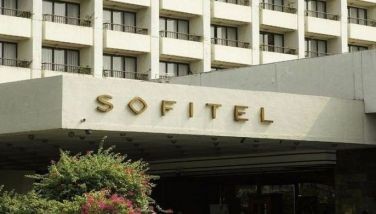Gov't, ADB mull new option on NFA sale
The Asian Development Bank (ADB) and the Philippine government may yet come to an agreement with regards the controversial proposed privatization of the National Food Authority -- one of the major conditions for the approval of the $175-million Grains Sector Development Program (GSDP) loan.
Of the $175 million, $100 million will be used for budgetary support while the balance will be for agriculture infrastructure. The first tranche was supposed to be released last year but had to be put on hold after the President took back his approval to the privatization of NFA.
The privatization of NFA was highly recommended by the country's economic managers because its continued operation will cause a severe drain on the government's coffers, aside from the fact that both producers and consumers were paying heavily for NFA's continued existence.
Instead of privatizing 51 percent of NFA, the ADB is now proposing that NFA's core assets (warehouses) be sold instead. The proposal calls for bundling the assets of NFA into eight -- Ilocos Region, Cagayan Valley, Central Luzon, Southern Luzon, Bicol/Eastern Visayas, Western Visayas (Iloilo port), Western Visayas (Cebu port), Mindanao -- and selling these to the private sector, or even local government units.
Agriculture Secretary Edgardo Angara, who met recently with top ADB officials, said the new option seems to be a better option since it will result in several grains trading companies.
ADB officials are currently meeting with members of the Economic Coordinating Council (ECC) to settle the issue of the GSDP once and for all. They are scheduled to meet with Trade Secretary Mar Roxas, Finance Secretary Jose Pardo, Executive Secretary Ronaldo Zamora, and NEDA Director General Felipe Medalla.
As originally envisioned, NFA's proprietary or trading function will be privatized via the sale of 51 percent of NFA's shares. NFA's grains marketing function will be absorbed by the new private corporation that will be created.
NFA's regulatory function, on the one hand, will be absorbed by another government line agency (either existing or to be created).
Angara, who was one of those who recommended the original privatization plan to the President, said that he just learned that the ADB from the beginning had three options. The first one, which was the only one presented to the government at that time, involves the sale of 51 percent of NFA. The second option calls for selling NFA's assets lock, stock and barrel, while the third option proposes the bundling of NFA assets (including mostly NFA's warehouses) into eight groups.
The DA secretary said he agrees with ADB that the third option seems to be a more viable option.
For many years now, NFA's operations have caused a severe drain on government's budget. From 1995-1998, total subsidy and equity infusion to NFA averaged P1.3 to P1.5 billion a year. Net losses from 1988-1998 totalled P20 billion while total liabilities, 80 percent of which are current, reached P17 billion as of December 1998.
The losses stem primarily from NFA's grains marketing activity, which entails buying palay and corn from farmers at a high price and selling rice and corn to users at a low price. The subsidy is used to cover the loss in operations.
Angara said that NFA is the primary reason for inefficiencies in the rice market, noting that NFA's palay buying price exerts downward pressures on farmgate prices. He said that for 1996 alone, estimated farmer income losses due to NFA's price intervention reached P12 billion.
On the one hand, consumers are unnecessarily paying higher prices. Estimated surcharges paid in 1997 due to NFA's price intervention and import policies hit P11 billion. Government, too, lost P3.7 billion in 1997 alone in foregone tariff revenues because NFA's import tariff payments were deferred or not being paid at all.
Angara explained that under the new proposed scheme, a National Rice Board to be chaired by the Secretary of Agriculture will be created to handle NFA's regulatory function. Buying and selling of grains will now be a function of the private sector and only the poorest of the poor will be able to buy NFA rice via a targetted subsidy scheme using coupons. Buffers stocking of rice will also be a purely private sector function.
The National Rice Board will be the government body that will decide on rice import/export volumes, allocate these volumes to the private sector, establish and implement rules and procedures on importation/exportation, among others. It will also determine at what price NFa rice should be sold.
He also emphasized that the reforms envisioned under the GSDP are very critical since they touch on the pricing policy. "The grains price mechanism is important because it provides either the incentives or disincentives for farmers to plant. If there are more players in grains trading, then farmers will get better prices for their produce while consumers will be able to buy lower priced rice," Angara said.
The DA chief also pointed out that the privatization of NFA will not happen overnight. "We expect the process to take three to four years to implement. We also have to consider any opposition that will be raised against the issue," he said.
The privatization of the NFA, even under the proposed new scheme, may still require amendment of NFA's charter, and consequently, the approval of Congress.
- Latest
- Trending





























